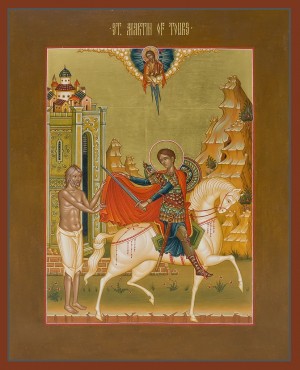
**By Scott Wright** “St. Francis was particularly concerned for God’s creation and for the poor and outcast. He loved, and was deeply loved for his joy, his generous self-giving, his openheartedness. He was a mystic and a pilgrim who lived in simplicity and in wonderful harmony with God, with others, with nature and with himself. He shows us just how inseparable the bond is between concern for nature, justice for the poor, commitment to society, and interior peace.” – Laudato Si, 10 These words from Pope Francis are a fitting way to remember Francis of Assisi, the thirteenth century saint whose Feast Day we celebrate October 4, and whose love for the poor and big heart open to God inspire us even today through the one who we know as Pope Francis. What can we learn from Francis? St. Francis abandoned his wealth and embraced poverty, becoming the poorest of the poor. St. Francis went to war as a young man, was taken prisoner, and embraced peace, taming the wolf and fearlessly seeking out his “enemy,” the sultan, to offer a gesture of reconciliation. St. Francis authored the beautiful canticle of creation and embraced care for all of creation. St. Francis was a mendicant, a street preacher and a migrant, forever on the road, an eternal pilgrim. These are certainly values to which we are called as Christians, and ones embodied in a special way by those who have answered the call to solidarity; but they are also values we find in our encounters with the poor and with those who are forced by circumstances – cruel wars, environmental disasters, religious persecution, dire poverty – to cross borders, including our own, in search of refuge and a better life for their families. These poor are the ones who, like St. Francis, bear the stigmata; they are the ones who, like Christ, are crucified by unjust structures and policies that oppress, exclude, marginalize the poor and ravish creation. Pope Francis has made care for the poor and for creation the heart of his passionate and compassionate response to the cry of the poor and the cry of the earth. He has put the poor and vulnerable, and future generations at the center of his urgent concern. Pope Francis has traveled out of his way to greet migrants and refugees from Syria, the Middle East and North Africa as they took refuge on the island of Lampedusa in the Mediterranean Sea, and to extend a fraternal embrace to Muslims and Jews alike, calling on nations to abandon war and to seek peaceful solutions to the bloody conflicts the world over. Pope Francis has made the poor, and the scandal of the gap between rich and poor in the world, the heart of his ministry and of the Church’s witness. He has called attention to the ravages of global warming and environmental destruction and has called on the nations of the world and all of us to end our fatal dependency on fossil fuels and to seek life-giving and sustainable alternatives. This is good news for the world, and for our Church. St. Francis heard a voice from heaven: “Repair my church in ruins.” We, too, are invited to respond with Pope Francis, and to hear his call to “repair our world in ruins.” St. Francis said: “Preach the Gospel, use words if necessary!” Let us respond with a big heart open to God, and to make our own the call for justice and mercy for the poor, and care for the earth and all of God’s creation.



